Susan Beck-Dore
I began my MPA Journey 21 years ago (May of 2001) as an Overnight Youth Counselor at our Pike campus in Bolton house. I was working towards my bachelor’s degree in Social Work at Plymouth State College. Having an overnight schedule was not ideal while I was also attending college. Luckily, I transitioned to day/evening shifts with non-traditional hours that seemed to change (based on the needs of the kids). 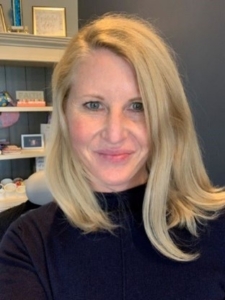 I recall traveling from Plymouth to Pike for my 6:00am morning split shift to help wake kids, transition them to school, and then head back to Plymouth for classes, only to return in the afternoon to complete a 2:00-10:00evening shift. How could I forget and not mention the 14-hour shift on Sundays! Sundays were a long day but always rewarding. I got to support various houses in the morning an participate in programming and then in the afternoon, travel around in the vans to pick up kids returning from their home time. Helping to process home time and support kids returning to a treatment program after being at home was a wonderful time to be an active listener and help provide some counseling and guidance to kids.
I recall traveling from Plymouth to Pike for my 6:00am morning split shift to help wake kids, transition them to school, and then head back to Plymouth for classes, only to return in the afternoon to complete a 2:00-10:00evening shift. How could I forget and not mention the 14-hour shift on Sundays! Sundays were a long day but always rewarding. I got to support various houses in the morning an participate in programming and then in the afternoon, travel around in the vans to pick up kids returning from their home time. Helping to process home time and support kids returning to a treatment program after being at home was a wonderful time to be an active listener and help provide some counseling and guidance to kids.
After doing that for a few years, I was promoted to a Community Leader. The first 3 years working residential were inspiring and I loved being able to mentor youth, engage in outdoor programming and be there to support some challenging times when kids were in crises and working through the trauma that they endured.
I was getting ready to complete my spring social work practicum when Jay Marshall asked if I was interested in helping him at our day school Connecticut River Academy. I supported Jay and the school while I also completed my social work practicum in Plymouth (Pike campus has relocated to Plymouth when the Wreath school was going out of business) as a Family Outreach Worker. Upon completion of earning my BSW, I was fortunate that there was a full-time job opening for a Family Outreach Worker. Although, I thoroughly enjoyed working with youth in the residential and school settings, I was starting to realize how much I enjoyed working with them but also in working with families, stakeholders, and the community. Having an ability to help bridge all systems and work with kids and their family systems collaboratively, I knew this was where I could help foster the most change that would hopefully lead to more successful permanent outcomes. A few years later, I decided to go back to graduate school to complete my MSW at UNH. Little did I know that I would end up having my son during my last year of graduate school!
I wanted to do more clinical work and become more skilled and educated on how to best work with vulnerable populations and people in need. It took me 3 years to finish my MSW and during that time, Jay M. (see some themes here!) again asked if I would be interested in helping start a new position in a different day school called LCLI. LCLI was looking to add more supports to their students and we created a school social work position. I worked in the school for a year, had my son and upon return from maternity leave, I was offered a position back in the residential setting to help oversee kids’ treatment. I was a Treatment Coordinator and Clinician for a few years and then transition back into Family work. I became the Director of Permanency and oversaw the residential “permanency coordinators”. Through this process, I worked tirelessly with others to improve our
services and strived to help make improvements in providing more family counseling and improved permanency for our kids.
After frustrations with the court and other system issues and honestly being burnt out, I was considering leaving the agency. Luckily, in 2010, I was re-energized when Jeff Caron and the Board of Directors supported me and agreed to let me apply to become a Community Based in Home provider for the state of NH. I view this as a turning point in my personal career because not only did we provide community-based services for our residential kids upon discharge, but we also started to serve females, younger kids and other populations that historically we didn’t serve in residential. We began to work on preventing kids from leaving their homes and communities to begin with. This was a pivotal change in how MPA viewed its role as a provider and as a “temporary” treatment program in a kid’s life. MPA began to shift gears dramatically and work wholistically towards providing youth and family guided services that centered more on serving the family and not just the individual. Our community-based services grew quickly, and we open services in Massachusetts, Vermont and later on in Maine. Currently we have 12 Community Based Offices throughout the 4 states.
I have always been supported, was offered different opportunities that continuously led to growth for me. I quickly learned that if I could help improve the services for kids and families by putting in the work, opportunities were endless. I always felt like my voice was heard and even though there have been growing pains and challenges along the way, I am grateful for the opportunities I had, and still have, to lead a meaningful life helping others.


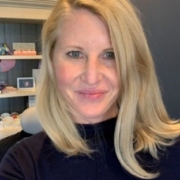
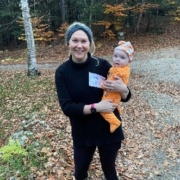
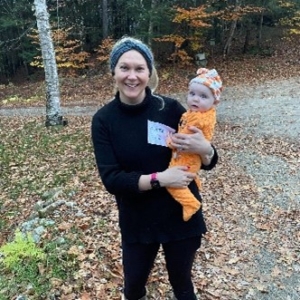 When I first started at MPA, I had students in the residential setting and also in the community (mostly the North Country – spent a lot of time in downtown Berlin, NH). I also had students at virtually every campus at MPA (Plymouth, Campton and Rumney) on my case load. As a Permanency Specialist I was asked to provide family therapy to boys (and girls!) in the community with their families which really honed my skills around being clinically assertive, understanding the importance of structure and routine, developmentally-appropriate consequences, and respectful communication in caregiving systems
When I first started at MPA, I had students in the residential setting and also in the community (mostly the North Country – spent a lot of time in downtown Berlin, NH). I also had students at virtually every campus at MPA (Plymouth, Campton and Rumney) on my case load. As a Permanency Specialist I was asked to provide family therapy to boys (and girls!) in the community with their families which really honed my skills around being clinically assertive, understanding the importance of structure and routine, developmentally-appropriate consequences, and respectful communication in caregiving systems
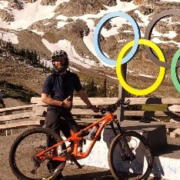
 This has been a goal of mine for the better part of a decade and I’m finally able to compete on the world stage thanks in part to support from Mount Prospect Academy. In just my short time here the team has helped me grow and develop as a professional and the support I have received is beyond what I could have imagined. Thank you all for everything and I would not be in this position without that support and such an awesome environment to flourish.
This has been a goal of mine for the better part of a decade and I’m finally able to compete on the world stage thanks in part to support from Mount Prospect Academy. In just my short time here the team has helped me grow and develop as a professional and the support I have received is beyond what I could have imagined. Thank you all for everything and I would not be in this position without that support and such an awesome environment to flourish.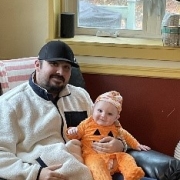
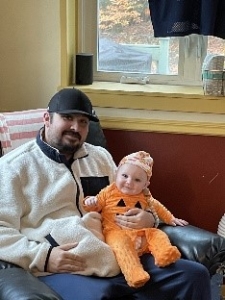 Things were, different, residentially ten years ago in terms of student-faculty ratio, student behavior and use of physical restraints. My third day I was asked to support an off-campus swim trip (my first day was a Wednesday that just so happened to be water safety training) and very quickly I found myself needing some support from a seasoned faculty, Jimmy Germano. I did not know this at the time but that seasoned faculty who arrived to support would spend the next ten years working side by side and eventually become my Program Manager in Warren. After gaining some experience (which I didn’t have prior to my first day), I transitioned to the Campton house where I became a community leader and eventually the Program Manager.
Things were, different, residentially ten years ago in terms of student-faculty ratio, student behavior and use of physical restraints. My third day I was asked to support an off-campus swim trip (my first day was a Wednesday that just so happened to be water safety training) and very quickly I found myself needing some support from a seasoned faculty, Jimmy Germano. I did not know this at the time but that seasoned faculty who arrived to support would spend the next ten years working side by side and eventually become my Program Manager in Warren. After gaining some experience (which I didn’t have prior to my first day), I transitioned to the Campton house where I became a community leader and eventually the Program Manager.